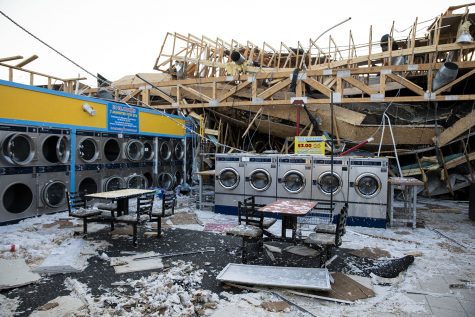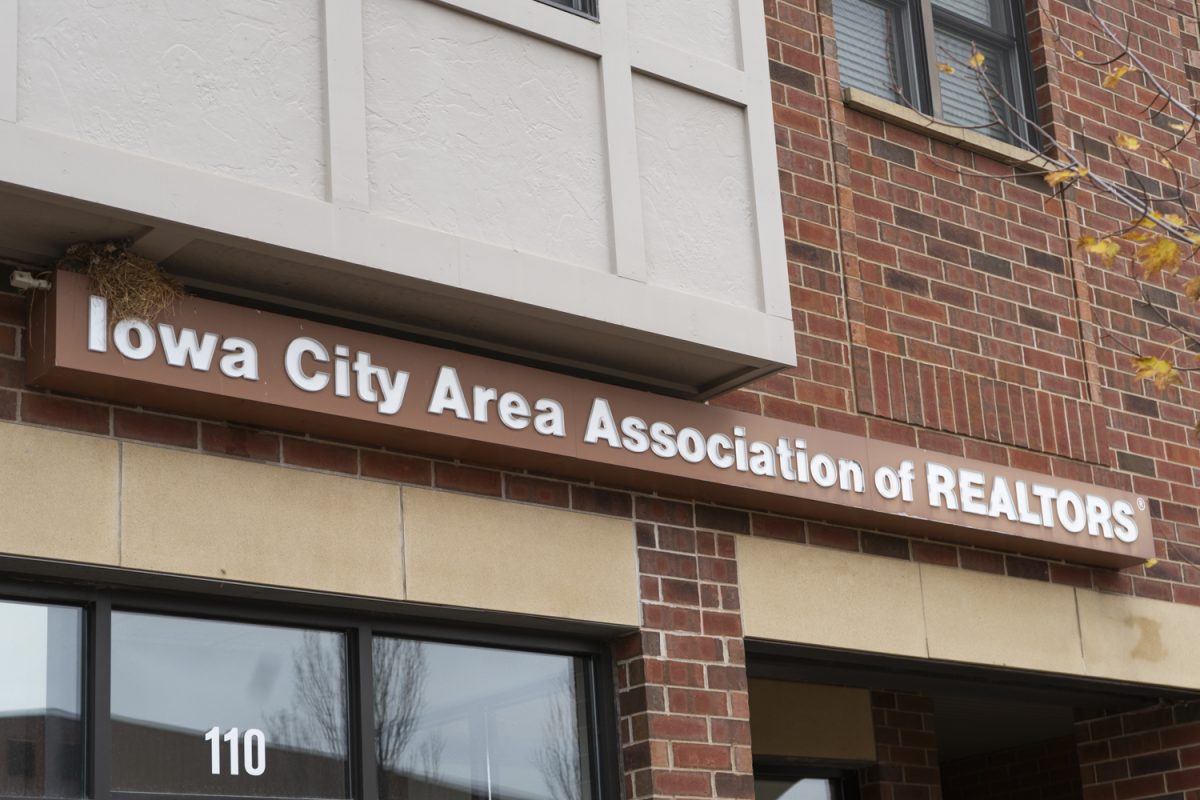The state of Iowa is regarded by many as the nation’s insurance capital — or is at least close to it. In fact, in the last 15 years, Iowa has seen its GDP grow by 57 percent just in the insurance and financial services industries.
As a measure of percentage contribution to GDP, that growth makes Iowa first in the nation in insurance as a generator of income, salaries, and economic benefit, according to the Iowa Economic Development Authority.
So, why are insurance carriers leaving the state?
For the most part, insurance carriers, or the organizations that write the insurance policies and must pay out in the case of a valid claim, are not necessarily “leaving” Iowa, though some are.
Most are substantially reducing the amount of coverage they are providing, re-evaluating their coverage and, in some cases, choosing to end coverage of some properties, Mark Friedlander, the Insurance Information Institute’s director of corporate communications, said.
This re-evaluation resulted from a series of major weather events that have cost insurance carriers billions of dollars in the U.S. overall, Friedlander said.
In 2023, he said, carriers covering Iowa properties paid out $1.44 for every dollar of collected premiums. This disparity is harmful to the industry and, considering Iowa in 2024 has reported 125 tornadoes, which is a record, he said, insurance carriers are reluctant to continue holding onto substantial amounts of risk.
Friedlander said replacement costs are an important element of insurance coverage. A replacement cost of an individual part of a property is the cost for the insurance carrier to restore that part, at today’s prices, to its original condition.
Over the last three years, Friedlander said, there has been a 55 percent increase in replacement costs as a result of massive amounts of claims and payouts which, in tandem with $63 billion worth of losses last year, has overall poised insurance carriers to fall back and restrict coverage.
“Once the damage is done, that 55 percent is never going back,” he said. “It’s never going to go backward.”

In Iowa, specifically, the 2020 derecho caused $11 billion in damages, he said. Not only did the derecho substantially displace the Iowa economy due to 850,000 acres of destroyed crops, but it put Iowa in critical condition, and the continued uptrend of serious weather events is discouraging insurance companies from doing business in Iowa.
Friedlander said some companies are minimizing the risk they take, which simply means they are doing less business. Though, he said the big companies with the largest market shares are here to stay, those being State Farm, Nationwide, and American Family. These companies alone make up approximately 45 percent of the overall market.
Phil O’Brien, Iowa City realtor and board president of the Iowa City Area Association of Realtors, said these shifts in the insurance industry can create tumultuous problems for Iowa City homeowners.
O’Brien said insurance companies that continue to do business in Iowa are changing the way they do business in ways other than simply reducing coverage. For example, O’Brien said some companies have started pro-rating claims, meaning they will only cover part of the total damage.
If a roof is worth $10,000 but only has $2,000 left of useful life, a carrier may only cover that $2,000, which is not enough to fully repair or replace the roof.
“How’s the roof going to get fixed?” he said. “And that’s only going to lead to more problems down the road as the roof continues to leak and water penetrates the house.”
RELATED: Housing trends show increased demand amid fluctuating interest rates
O’Brien said these situations where homeowners have to balance insufficient claim payouts with insufficiently repaired parts of their property can lead to extemporaneous solutions.
“Maybe there’s a temporary fix [to the damage] that you can do and save up the money over however long it takes,” he said. “Then maybe you could take out a home equity line, but if neither of those are good options, then that’s going to be a bad situation for the homeowner.”
O’Brien said he has had some preliminary discussions with insurance agents and the Iowa legislature to try and address these burdens on homeowners. He said one of the preliminary ideas is creating a subsidy on certain kinds of insurance.
“I don’t want to see insurance companies go out of business, and I don’t want to see homeowners lose their jobs or lose their houses,” he said.
Tippie Faculty Director and Professor of Finance Martin Grace said it is hard to measure the number of people who resort to selling their property when they cannot cover repair costs insurance carriers will not pay. He said, though, that such a situation has happened before.
Grace has studied, among other things, the impacts of natural disasters on the insurance industry. He said hurricanes in southwest Florida wiped out small, one-story wooden houses that were worth around $60,000 on average. Even though the land they were on was well-approaching $1 million, the costs to rebuild the homes far exceeded their original values.
“It’s going to cost almost a million dollars to rebuild my house because they have to put it up to code, and I can’t afford that, so they sell,” Grace said.
By his observation, Grace said, many of the carriers that will no longer cover the local Johnson County area and Iowa as a whole are small, mutually-owned firms. These carriers are defined as “mutual” because they are wholly owned by their policy-holders, similar to a cooperative organization like a credit union.
“They’re going to be more risk-averse because they just don’t have access to the same kind of capital the same way that a large insurance company does,” he said.



